Remember that values questions have a “you” in them. The goal is to involve people in relating what they see on the screen to their own lives, not to analyze the filmmaker’s technique or to engage in intellectual criticism. Allow the conversation to flow along a values and feelings track.
Bio/Short Description
Renee Hobbs is the author of many books and articles about media literacy education and her work has influenced a generation of new scholars and teachers. She spent 18 years teaching media studies at Babson College in Wellesley, Massachusetts, where she developed the Felton Scholars Program in collaboration with Elizabeth Thoman of the Center for Media Literacy in Los Angeles. With Thoman and others, she helped to found the national organization that evolved into the National Association for Media Literacy Education. Hobbs collaborated with the Maryland State Department of Education and Discovery Communication to create Assignment: Media Literacy, a comprehensive K-12 media literacy curriculum created in 1998. Appointed to a professorship at Temple University's School of Communication and Theater in 2003, Hobbs established the Media Education Lab. In 2007, Hobbs became founding co-editor of the online open access journal, the Journal of Media Literacy Education. Today, she teaches graduate and undergraduate courses in media literacy, digital authorship, children and media, media education and contemporary propaganda to students in Education, English, Communication Studies and Library and Information Studies at the University of Rhode Island.
Other Grandparents
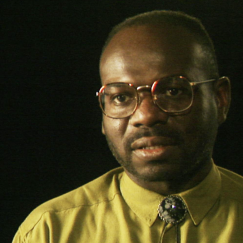 Marlon Posted By: Renee HobbsOn:11/29/2023 - 00:56
Marlon Posted By: Renee HobbsOn:11/29/2023 - 00:56
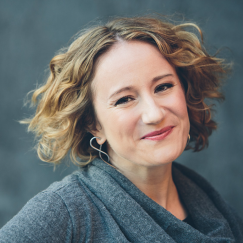 danahPosted By: Yonty FriesemOn:01/06/2023 - 07:34
danahPosted By: Yonty FriesemOn:01/06/2023 - 07:34
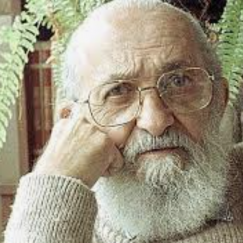 PaoloPosted By: Renee HobbsOn:07/22/2021 - 16:11
PaoloPosted By: Renee HobbsOn:07/22/2021 - 16:11
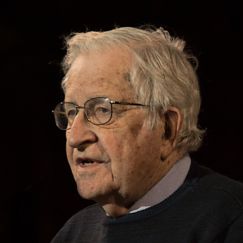 NoamPosted By: Renee HobbsOn:05/23/2020 - 03:48
NoamPosted By: Renee HobbsOn:05/23/2020 - 03:48
 Jon Posted By: Renee HobbsOn:05/10/2020 - 00:12
Jon Posted By: Renee HobbsOn:05/10/2020 - 00:12

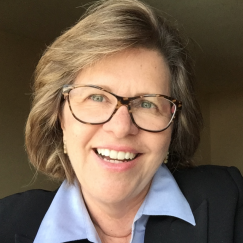

Hongyan Lu
Professor Hobbs has had a great influence on me in many ways. My first encounter with her was in Ningxia, September in 2015 when she was invited to Ningxia University where I work. We had a nice chat during lunch and coffee break. Her lectures “Making Global Connections: Media and Technology in L2 Language Learning”, “Digital and Media Literacy Connecting Classroom and Community” “ When Literacy Goes Digital: Teaching Strategies with Mass Media, Digital Media and Popular Culture” were the most interesting and impressive ones that I had ever seen, though at that time these areas were so new to me and all the audience in the lecture room. But the way she spoke and handled the lectures made me wonder what a great speaker she is, confident, humorous, entertaining, informative, and also with such a unique laughter. At that time, I said to myself: I like her, and I wanted to be her student one day, which motivated me to apply for the research scholar program funded by Chinese Scholarship Council, and made my second encounter with Professor Hobbs possible here in the United States.
My second encounter with her is defined as a “family member” more than a “research scholar” by me. And nobody never knows how lucky I am to stay and live in her nice and beautiful house in such a special Newport, and I have always been feeling so grateful for all the encounters and all the meetings, formal or informal, every single moment with her. Professor Hobbs and her husband has been helping me a lot in my life, especially in taking care of my 5-year-old boy, Lewis. And we have been going with them to New York trips, parties, dinners at their friends’. And we are so deeply attached to them as family members that whenever there is a departure, Lewis will burst into tears, saying, “I do not want grandma and grandpa to go away”. You will never know how fun it is to be with Renee when it comes to playtime. I’ve got to tell you: Professor Hobbs plays as hard as she works, though I never know how she manages it. I will take a UNO card game for example: she will engage herself completely in the game, laughing, enjoying, messing around with Lewis, working hard to win the game. She is such a fun person to be with, and my 5-year-old son figures out very soon, so whenever Profess Hobbs is in the house, he will go to her, stick closely to her so that she will spend time playing with him, which constantly distracts her from her work.
As a human being, Professor Hobbs’ dedicated devotion to her career touches me a lot. She loves work so much, just as I said earlier, she plays as hard as she works. And I never see a person who loves work and devotes herself into work so work. I like observing the way she works, so dedicated that it is such a beautiful human activity. Everyone works, but not everyone enjoys what he or she is working, which makes work a kind of suffering to a certain group of people, but for her, work is like play, there is so much fun involved. She is the role model for the the idea: “Do what you love.” And this is seldom seen in China, a cultural environment where people have to work to make a living, where people work hard to make a huge amount of money, where people work hard save money so as to afford a luxury to save their “face” or social status, which I find so stupid. The way Professor Hobbs works should be the right way that everyone in this world should do, thus a great progress of societal development, cultural civilization, academic achievement will be made.